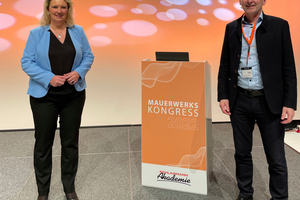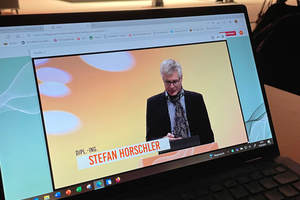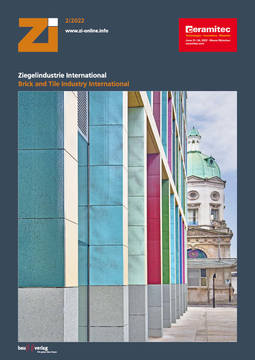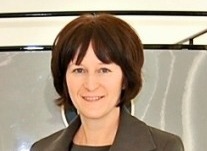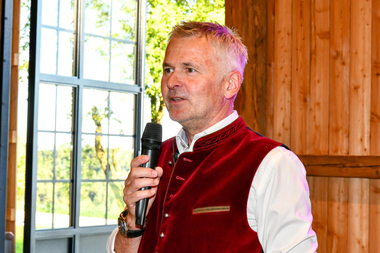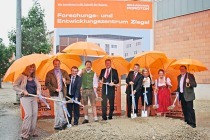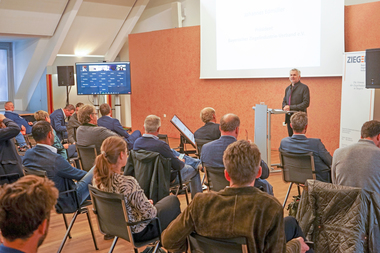No two-class society in public construction
After more than 20 years of the Masonry Congress, on account of the Covid pandemic, this year’s branch event organized by Schlagmann Poroton was held as a live stream for the first time. In a new format and live from the Eisbach Studios in Munich, the event for architects, planners, building physics engineers, builders and installation contractors was broadcast by the Schlagmann team on 17 February. “That was tough as we know our Masonry Congress as a vibrant event year after year, with lively discussion accompanying the high-calibre talks,” said Managing Partner Johannes Edmüller, welcoming the participants on their screens.
In the presence of Kerstin Schreyer, Bavaria’s State Minister for Housing, Construction and Traffic, Edmüller spoke about the, in his view, currently misguided developments in the shaping of general political conditions. “Like mud and clay bricks, timber has served us humans as an important building material for our homes for thousands of years – and I think it is the combination, that is the symbiosis that makes the difference,” says Edmüller. “And I know that our (Bavarian) prime minister has realized that forests are one of our most important allies in the battle against climate change. We therefore need more forests and healthy forests at that.”
Appeal against the government-initiated timber construction campaign
Fully counterproductive here, however, was the government statement announcing a government-initiated timber construction campaign in Bavaria with the request to all government building departments to build everything in timber wherever possible. That was “a government-prescribed two-class society for public construction,” says Edmüller. His criticism of the policy was that not only the employees in his company, but all of the around 92 000 employees involved in masonry construction would be demoted to second class as a consequence. He argued that the privileged treatment of one construction material was being cleverly packaged under the “guise of forests as climate activists”. And notable “ideologists“ would see the climate problem as solved if 90 percent of houses worldwide were timber-built. A “bold theory“ that Johannes Edmüller knows how to clearly disprove with sound numbers based on the example of Germany. The quantity of timber needed here could not be supplied by the forests in Germany, and imports from abroad weren’t sustainable, moreover they would be logistically absurd, and much too expensive in any case. Undisputed, however, was “that we want to build at low cost, and indeed must do this as building must remain affordable”. Edmüller: “We are not demanding any preferential treatment, but we do want neutrality from the government. A split into first- and second-class building should not be allowed. Only together can we win the battle against climate change.” Brick building and its over 90 000 employees in masonry construction were the solution for climate-resilient, but nevertheless low-cost building for healthy living.
Bavarian minister Kerstin Schreyer: Home-building families should have a free choice in the materials with which they build their homes
Policymakers had their eye on all building materials and did not favour one over another, assured Kerstin Schreyer. Used in the right way, many building materials were certainly sustainable – such as concrete, bricks or loam. “How things are built depends on the individual projects and specific requirements,” says the minister. Not every building material was suitable for every building job, and investors and home-building families should have a free choice in what they use to build their houses.
Following an exciting and informative programme with renowned speakers, the cabaret artist Django Asül rounded off the Masonry Congress with lots of jokes and laughter. The organizers expressed their hope that they will be able to hold the next congress as a well-attended in-person event in 2024.
Other events organized by the Schlagmann Academy can be found at www.schlagmann.de/akademie. All seminars are recognized as advanced training. Participants can obtain different advanced training points depending on the topic addressed.

